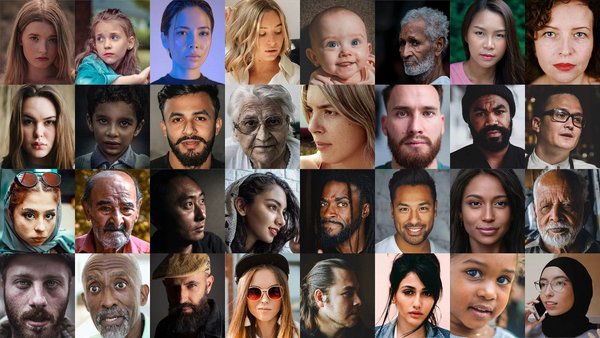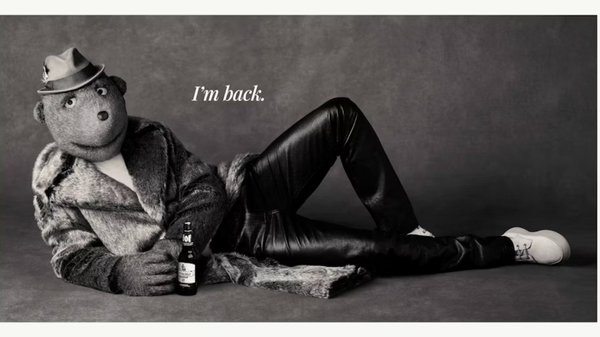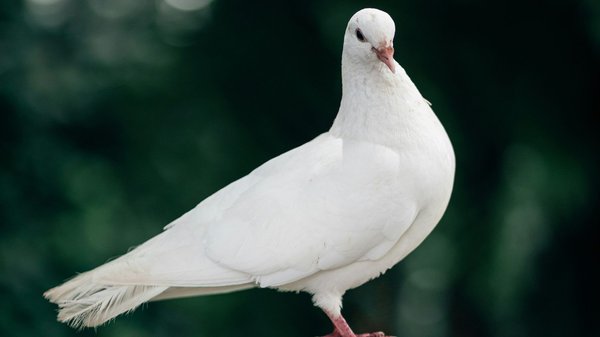‘If you’ve got an interesting brand, why not try appealing to a consumer’s sense of curiosity?’ /
As Google begins to phase out third-party cookies, Paul Domenet, creative strategy director and partner at Free The Birds, asks whether a reliance on data has robbed advertising of its taste for the unpredictable.

Data can be a wonderful thing. It is the bedrock of science. Seeing the patterns in numbers has given us countless life-changing, life-saving breakthroughs that have altered the course of human history.
But that same human history has also been shaped by something much less numerical — curiosity. We just can’t help wondering. Why is that thing doing that thing? What’s behind that? Who are they?
In some cases, data can be curiosity's friend. In the field of medicine, for instance, curiosity about the cause of illness and disease uses data to point the way to a cure. Yet I’m a little anxious about the over-reliance on data in marketing. Our world has become increasingly guard-railed by data. ‘If you like this, you’ll like this.’ ‘That set of words didn’t get as many clicks as this set of words so change them. Now.’
Buying patterns tell us what, how and when to market products, and this is happening more and more in real time. Data’s value (which has been immense in marketing) relies on predictability. And that is where the tension lies.
And so marketers and their brands have been reliant on third-party cookies for the majority of the 21st century. Until now. We are, officially, on the cusp of these data-mining would-be treats disappearing from our lives; Google’s phase out begins this year after first teasing the beginning of the end back in 2020. Some agencies have been preparing how they will manage the loss of this information for a while. Others are in panic mode trying to catch up. But is anyone excited about the possibilities that this transition opens up? Or is it just me?
We are human. We are curious. We are not predictable. We like to explore (otherwise, America would not be America). We like to know what’s out there even when we don’t know where ‘out there’ is. We like to try new things. And data doesn’t like that.
Marketing data doesn’t like you trying new things because it is very busy building patterns of people buying the same things so that it can feed more of the same things to the same people who seem to like those same things. And round we go.
And yet, the data would show that pretty regularly we do things that data wouldn’t predict. Especially in the world of social media. What goes viral persistently confounds the accepted wisdom of what you need to go viral. Sea shanties, Roman Empires, the main character energy of a Wes Anderson spoof. All gloriously came from nowhere and appealed to our indefinable, intangible love of the quirky, odd and unpredictable. (Here data shakes its head and tuts.)
When my head was more firmly in the advertising world and the advertising world’s head was more firmly in broader branding activity, these instances were commonplace. The usual unusual suspects. A surfer, a drum-playing gorilla, etc, etc. I’m not going to go down that cultural rabbit hole, which many wiser people have mused upon in a much more educated way than I could.
However, my anxiety level has been raised by the way marketing seems to discourage curiosity, surely the defining attribute of our species. ‘If you like this, you’ll like this’. No. How about ‘we know what you normally listen to, but how about this for a change?’
If you’ve got a brand, an interesting brand, why not try appealing to a consumer’s sense of curiosity. Every consumer’s got one. (See earlier viral examples.) The thing is, we are not linear, nothing in the natural world is. Nature doesn’t do straight lines. If you see a straight line — a road, a wall, building — nature didn’t put it there. Nature is too busy going off at tangents. Just look at a tree.
And that’s what curiosity does for us; curiosity is like the roots of a tree, feeling its way in different directions to see what it might find. And, oh, the sense of joy and exhilaration when curiosity discovers something it hasn’t seen, heard, tasted or felt before!
Once upon a time, we were all tiny children, and we had never tasted chocolate, or jumped in water, or walked on the sand, but our curiosity took us there. Data was waiting for us to grow up so that we can start displaying ‘preferences’, that most hideous of words.
It is pleasing to note that in wider society the idea of preferences and stereotypes and classifications is significantly changing. But in marketing, data has continued to reinforce this rigid system. I have been wondering, waiting, for the time to try something different. Just wondering. I’m curious.
Want more of the same? /
We don’t just write about best-in-class campaigns, interviews and trends. Our Members also receive access to briefings, online training, webinars, live events and much more.







